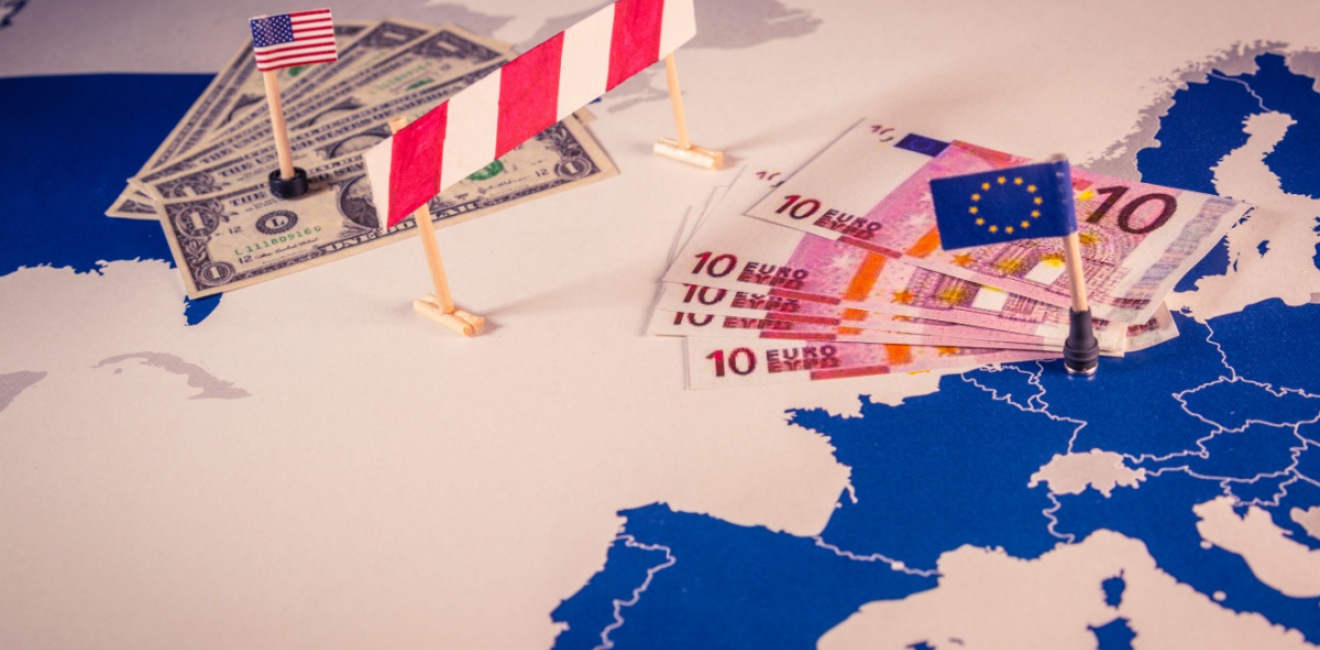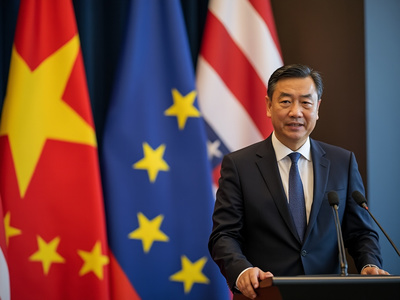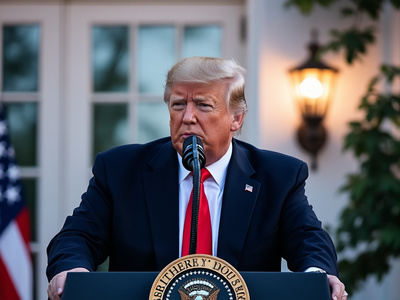
EU Minister Calls for Economic Aid Amid Ongoing Trade Tensions with the U.S.
Carlos Cuerpo urges the European Commission to support sectors impacted by U.S. tariffs as markets respond critically.
Carlos Cuerpo, the Minister of Economy, emphasized the need for the European Union (EU) to allocate economic assistance to sectors affected by the trade war initiated by former U.S. President Donald Trump.
This call for support came during a meeting of EU trade ministers held on April 7, 2025, in Luxembourg.
Cuerpo advocated for this aid to be financed by revenue generated from the new tariffs that Brussels intends to impose on American imports as a form of retaliation aimed at encouraging the U.S. to return to the negotiating table.
He expressed the belief that the recent downturn in stock markets underscores the detrimental effects of Trump's trade policies, which he argued could ultimately compel the U.S. to reconsider its approach.
The Minister stressed the importance of the EU maintaining a calm and united front while diversifying its trade policy.
He highlighted the necessity of implementing existing trade agreements, such as the one with Mercosur—a regional trade bloc that includes Argentina, Brazil, Paraguay, and Uruguay—and actively seeking new markets in Asia.
He pointed to the ongoing visit to Asia by Spanish Prime Minister Pedro Sánchez as a pivotal step in this direction.
Cuerpo stated, "When we talk about protecting the interests of our industries and businesses, we want Europe to complement the responses available to member states.
Spain, from the outset, has launched a safety net for potentially affected sectors, and we believe there should also be a European-level instrument to support the companies and sectors impacted."
He outlined three reasons for the EU's responsibility in this aid.
First, he noted that tariff competencies are held by the European Commission.
Second, he pointed out that revenues from U.S. tariffs would predominantly contribute to the EU's budget.
Third, he reiterated the need for a unified European message of protection.
In regards to the United States, Cuerpo maintained that the EU should continue to extend an olive branch in hopes of concluding negotiations that would benefit both sides.
He characterized the U.S.-EU relationship as the world’s most important commercial and economic partnership, emphasizing that Europe remains open to dialogue and a fair negotiated solution.
Cuerpo further acknowledged the necessity of demonstrating Europe’s preparedness to protect its consumers and industries, affirming that the EU possesses the necessary tools to do so.
While he refrained from detailing specific measures that might be taken if dialogues fail, he underscored the critical nature of global market signals concerning economic policies.
"The message being sent from global stock markets is clear: we are facing economic policies that are harmful and detrimental on a global scale," Cuerpo stated.
"We must collectively reconsider and strive for a negotiated solution that benefits our economies."
He highlighted the significant economic interdependence between the U.S. and Europe, noting that approximately €4.4 billion in goods and services flow daily across the Atlantic.
Cuerpo reiterated the need to reinforce rather than fragment these markets and underscored the importance of listening to market signals.
This call for support came during a meeting of EU trade ministers held on April 7, 2025, in Luxembourg.
Cuerpo advocated for this aid to be financed by revenue generated from the new tariffs that Brussels intends to impose on American imports as a form of retaliation aimed at encouraging the U.S. to return to the negotiating table.
He expressed the belief that the recent downturn in stock markets underscores the detrimental effects of Trump's trade policies, which he argued could ultimately compel the U.S. to reconsider its approach.
The Minister stressed the importance of the EU maintaining a calm and united front while diversifying its trade policy.
He highlighted the necessity of implementing existing trade agreements, such as the one with Mercosur—a regional trade bloc that includes Argentina, Brazil, Paraguay, and Uruguay—and actively seeking new markets in Asia.
He pointed to the ongoing visit to Asia by Spanish Prime Minister Pedro Sánchez as a pivotal step in this direction.
Cuerpo stated, "When we talk about protecting the interests of our industries and businesses, we want Europe to complement the responses available to member states.
Spain, from the outset, has launched a safety net for potentially affected sectors, and we believe there should also be a European-level instrument to support the companies and sectors impacted."
He outlined three reasons for the EU's responsibility in this aid.
First, he noted that tariff competencies are held by the European Commission.
Second, he pointed out that revenues from U.S. tariffs would predominantly contribute to the EU's budget.
Third, he reiterated the need for a unified European message of protection.
In regards to the United States, Cuerpo maintained that the EU should continue to extend an olive branch in hopes of concluding negotiations that would benefit both sides.
He characterized the U.S.-EU relationship as the world’s most important commercial and economic partnership, emphasizing that Europe remains open to dialogue and a fair negotiated solution.
Cuerpo further acknowledged the necessity of demonstrating Europe’s preparedness to protect its consumers and industries, affirming that the EU possesses the necessary tools to do so.
While he refrained from detailing specific measures that might be taken if dialogues fail, he underscored the critical nature of global market signals concerning economic policies.
"The message being sent from global stock markets is clear: we are facing economic policies that are harmful and detrimental on a global scale," Cuerpo stated.
"We must collectively reconsider and strive for a negotiated solution that benefits our economies."
He highlighted the significant economic interdependence between the U.S. and Europe, noting that approximately €4.4 billion in goods and services flow daily across the Atlantic.
Cuerpo reiterated the need to reinforce rather than fragment these markets and underscored the importance of listening to market signals.
Translation:
Translated by AI
AI Disclaimer: An advanced artificial intelligence (AI) system generated the content of this page on its own. This innovative technology conducts extensive research from a variety of reliable sources, performs rigorous fact-checking and verification, cleans up and balances biased or manipulated content, and presents a minimal factual summary that is just enough yet essential for you to function as an informed and educated citizen. Please keep in mind, however, that this system is an evolving technology, and as a result, the article may contain accidental inaccuracies or errors. We urge you to help us improve our site by reporting any inaccuracies you find using the "Contact Us" link at the bottom of this page. Your helpful feedback helps us improve our system and deliver more precise content. When you find an article of interest here, please look for the full and extensive coverage of this topic in traditional news sources, as they are written by professional journalists that we try to support, not replace. We appreciate your understanding and assistance.











